August 27, 2024
By Nancy Adams
We’re thrilled to welcome these LPC members, who have joined or rejoined in the past few months under the 10th Anniversary Membership Special offer!
Brown University
 Brown University Digital Publications — a collaboration between the University Library and the Dean of the Faculty, generously launched with support from the Mellon Foundation with additional support from the National Endowment for the Humanities and the Institute of Museum and Library Services — creates exciting new conditions for the production and sharing of knowledge. Brown partners with leading scholarly publishers to ensure that these groundbreaking works are validated via rigorous academic review and reach the broadest possible audience for the greatest possible impact. Widely recognized as accessible, intentional, and inclusive, Brown’s novel, university-based approach to digital content development is helping to set the standards for the future of scholarship in the digital age.
Brown University Digital Publications — a collaboration between the University Library and the Dean of the Faculty, generously launched with support from the Mellon Foundation with additional support from the National Endowment for the Humanities and the Institute of Museum and Library Services — creates exciting new conditions for the production and sharing of knowledge. Brown partners with leading scholarly publishers to ensure that these groundbreaking works are validated via rigorous academic review and reach the broadest possible audience for the greatest possible impact. Widely recognized as accessible, intentional, and inclusive, Brown’s novel, university-based approach to digital content development is helping to set the standards for the future of scholarship in the digital age.
University of Maryland

The University of
Maryland, College Park (UMD) is the flagship institution of the University System of
Maryland. As the only public research university inside the Washington, D.C. beltway, UMD has forged strategic partnerships with national institutions and federal agencies to uniquely position the university’s faculty, researchers and students. Driven by its diverse and proudly inclusive community of more than 40,000 students, 10,000 faculty and staff, and 300 academic programs, UMD is fearlessly committed to addressing the grand challenges of our time and serving the public good.
UMD’s library publishing initiatives are developed by its Open Scholarship Services team, whose mission is to increase knowledge equity and to encourage inclusive and creative approaches to public scholarship. In addition to journals and open educational resources, UMD Libraries hope to support digital scholarship projects in collaboration with the forthcoming StoRI Lab, which will foster innovative research storytelling on our campus.
Adelphi University
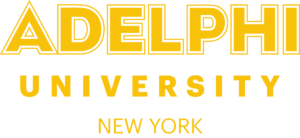 Adelphi University is located in Garden City, New York, a short distance from New York City, with satellite campuses in the city, Hudson Valley, and Hauppauge. Adelphi offers a number of highly ranked degree programs for undergraduate and graduate students with particular strengths in psychology, nursing, business, and social work. The digital publishing program at Adelphi University Libraries, which began in 2022, currently publishes a peer-reviewed scholarly journal and an undergraduate magazine. The program is also responsible for managing Adelphi’s institutional repository, Scholarly Works, and using it to disseminate scholarly and creative content produced by the Adelphi community.
Adelphi University is located in Garden City, New York, a short distance from New York City, with satellite campuses in the city, Hudson Valley, and Hauppauge. Adelphi offers a number of highly ranked degree programs for undergraduate and graduate students with particular strengths in psychology, nursing, business, and social work. The digital publishing program at Adelphi University Libraries, which began in 2022, currently publishes a peer-reviewed scholarly journal and an undergraduate magazine. The program is also responsible for managing Adelphi’s institutional repository, Scholarly Works, and using it to disseminate scholarly and creative content produced by the Adelphi community.
Tufts University 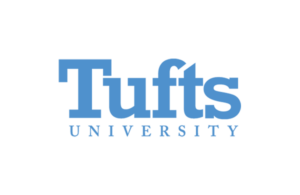
Tufts University is a student-centered R1 research university, with 10 schools and colleges including Arts, Sciences & Engineering, School of the Museum of Fine Arts, Medicine, Dental, Veterinary, and the Fletcher School of Law & Diplomacy. Tufts libraries currently support publishing activities through repositories, DOI minting, support for OER creation, and the Tufts Scholarly Communication Team. We’ve recently signed a hosting agreement with PKP/OJS and are excited to begin
VIVA
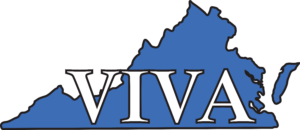 VIVA is the consortium of academic libraries in Virginia representing 71 institutions of higher education. Members include 39 public colleges and universities, 31 independent private non-profit institutions, and the Library of Virginia. Since 1994, VIVA has worked to build an equitable, accessible, and robust infrastructure of library resources and services for Virginia higher education students and faculty. VIVA Open Publishing is an Open and Affordable initiative providing centralized publishing support for VIVA Open Grant recipients and support for our member institution’s library publishing programs. For more information, please visit www.vivalib.org.
VIVA is the consortium of academic libraries in Virginia representing 71 institutions of higher education. Members include 39 public colleges and universities, 31 independent private non-profit institutions, and the Library of Virginia. Since 1994, VIVA has worked to build an equitable, accessible, and robust infrastructure of library resources and services for Virginia higher education students and faculty. VIVA Open Publishing is an Open and Affordable initiative providing centralized publishing support for VIVA Open Grant recipients and support for our member institution’s library publishing programs. For more information, please visit www.vivalib.org.

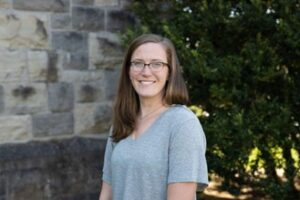 I am beyond honored to receive the LPC Exemplary Service Award this year. I have learned so much from serving on the various committees, from where we can focus our research to how we’re preserving the work we’re publishing, that has helped shape how I approach my day-to-day work. The opportunities that LPC provides to work with others and better share these findings has been instrumental to how we grow and develop library publishing at large. It has been an honor and a pleasure to work with so many involved in the community, but I’d like to give an extra shout-out for the work Cheryl Ball, Matt Vaughn, and I did with the platform crosswalk project, which wouldn’t have been possible without support from LPC. Thank you so much!
I am beyond honored to receive the LPC Exemplary Service Award this year. I have learned so much from serving on the various committees, from where we can focus our research to how we’re preserving the work we’re publishing, that has helped shape how I approach my day-to-day work. The opportunities that LPC provides to work with others and better share these findings has been instrumental to how we grow and develop library publishing at large. It has been an honor and a pleasure to work with so many involved in the community, but I’d like to give an extra shout-out for the work Cheryl Ball, Matt Vaughn, and I did with the platform crosswalk project, which wouldn’t have been possible without support from LPC. Thank you so much!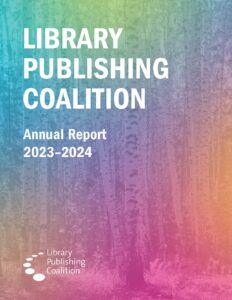 The Library Publishing Coalition is pleased to announce the release of its
The Library Publishing Coalition is pleased to announce the release of its 

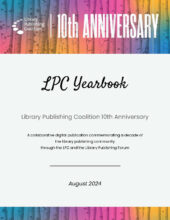 Our thanks to the LPC community for celebrating our 10th anniversary with us over the last year! We’ve had some great conversations (both nostalgic and
Our thanks to the LPC community for celebrating our 10th anniversary with us over the last year! We’ve had some great conversations (both nostalgic and 
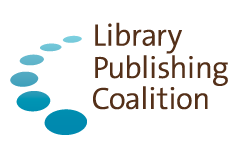

 Brown
Brown The University of
The University of  Adelphi
Adelphi
 VIVA
VIVA